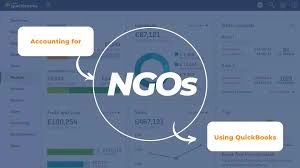Course Overview
Risk management is arguably more important now than it has ever been. In light of rising globalization, governments and corporations are continually confronted with new threats. Fortunately, there is a growing awareness of the importance of sound governance and risk management. Every organization needs effective risk management and must have a risk management plan that is customized for the organization to manage risks effectively and reduce their impact.
This training on financial risk management course will empower participants in developing skills to identify and evaluate risks and integrate risk management with the overall strategic plan of the organization.
Course Duration
5 Days
Who Should Attend
- Financial managers and analysts
- Risk management professionals
- Treasury managers
- Investment managers
- Accountants and auditors
- Compliance officers
- Business owners and entrepreneurs
- Anyone interested in enhancing their knowledge of financial risk management
Course Objectives
By the end of this course, participants will be able to
- Understand the key concepts and principles of financial risk management.
- Identify and assess different types of financial risks.
- Develop strategies and techniques for managing financial risks.
- Apply risk management tools and frameworks to real-world scenarios.
- Enhance decision-making skills related to financial risk management.
- Learn regulatory requirements and best practices in financial risk management.
- Use financial models to quantify and mitigate risks.
- Gain insights into the latest trends and developments in financial risk management.
Course Outline:
Module 1: Introduction to Financial Risk Management
- Overview of financial risk management
- Types of financial risks: credit, market, operational, and liquidity
- Risk management frameworks and standards
- Regulatory environment and compliance
Module 2: Credit Risk Management
- Identifying and assessing credit risk
- Credit risk models and measurement techniques
- Mitigating credit risk through diversification, credit derivatives, and other tools
- Case studies on credit risk management
Module 3: Market Risk Management
- Understanding market risk and its sources
- Market risk measurement methods: Value at Risk (VaR), stress testing, and scenario analysis
- Hedging market risk using derivatives and other instruments
- Practical exercises on market risk management
Module 4: Operational and Liquidity Risk Management
- Identifying operational risks and their impact
- Operational risk assessment and mitigation strategies
- Liquidity risk management: sources, measurement, and mitigation
- Case studies on operational and liquidity risk management
Module 5: Integrated Risk Management and Practical Applications
- Integrating various risk management approaches
- Building a comprehensive risk management framework
- Using financial models for risk quantification and management
- Hands-on exercises and simulations
- Review and wrap-up: key takeaways and best practices in financial risk management
Customized Training
This training can be tailored to your institution needs and delivered at a location of your choice upon request.
Requirements
Participants need to be proficient in English.
Training Fee
The fee covers tuition, training materials, refreshments, lunch, and study visits. Participants are responsible for their own travel, visa, insurance, and personal expenses.
Certification
A certificate from Ideal Sense & Workplace Solutions is awarded upon successful completion.
Accommodation
Accommodation can be arranged upon request. Contact via email for reservations.
Payment
Payment should be made before the training starts, with proof of payment sent to outreach@idealsense.org.
For further inquiries, please contact us on details below:






